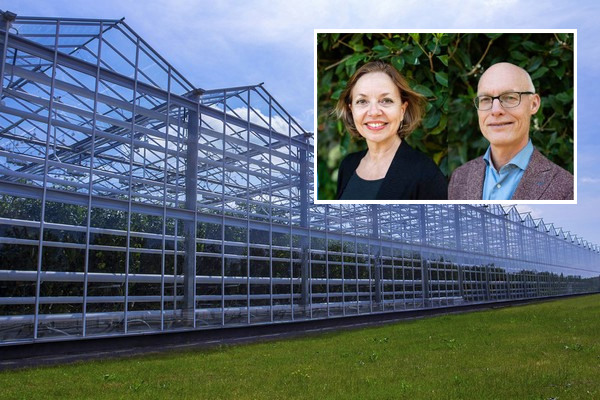"Currently, France imports half of their fruit and vegetables, which is perceived as embarrassing for a country that prides itself on its agricultural traditions," Martijn Weijtens, Agriculture Council at the Dutch Embassy in Paris, told Reuters. For this reason, the French government has announced large-scale investments and development plans, including from the France 2030 program, which is releasing hundreds of millions of euros in funds for the horticultural sector. "Reducing the dependence on imported products is a major challenge," he said.
France 2030
"France's big frustration around fruit and vegetables is that they import half of them," Martijn says. Money is being released from all sorts of funds to change this. The most prominent is the France-2030 program, where hundreds of millions of euros are available.
"When President Macron came to power, the focus of domestic production was on the high-end: providing added value, distinctiveness. Now they see that this strategy is largely in place, but they also need to produce for the ordinary person with a small budget." He clarifies that French consumers have also seen their purchasing power eroding. "As a result, there is a demand for cheaper, industrially produced products. The French consumer likes to buy French, but if the price is too high, like the Dutch, they still buy the Spanish or Moroccan tomato. If they can produce it in France, all the better."

More self-sufficient
The French government has set targets to produce 5% more fruit and vegetables domestically by 2030, up from 50% today, and to be self-sufficient for 60% of fruit and vegetable supplies by 2035. While these targets sound modest, Martijn says they may be realistic given the commitment and resources available and the diversity of today's agriculture and horticulture sector. "Although there are modern farms, such as in western Brittany and the Loire region, much of the sector consists of small-scale cultivation. Among the entrants into the sector, you see many idealists: small-scale projects with a sustainable character and focused on the short chain. Although these initiatives are sympathetic, large-scale production is needed to meet France's food needs."
In this regard, the modernization of greenhouses also certainly has priority, says Martijn, who adds that many emotions are also involved here. "There is an ambivalent attitude towards greenhouses: on the one hand, they provide locally grown food, opportunities for knowledge development, and increased employment, but greenhouses are also seen as something industrial: they are large, sometimes painted over, and inaccessible. French people cling to the ideal image of vegetables and fruit grown traditionally in the countryside."
This is also reflected, for example, in the many labels and seals of approval for local production and the legislation on organic growing: heating those greenhouses was not allowed for some years. "But even these rules are being changed to still allow year-round cultivation in the organic sector as well. "At the same time, consumption of organically grown produce is stagnating. "Consumption was on the rise until 2021 but is now showing stagnation. Moreover, organic is competing with short-chain and sustainability labels, especially when it turned out that organic product was also being imported," Marieke Riesmeijer, Agriculture Council colleague, noted.
Agrivoltaism
One sector benefiting from these trends is that of 'agrivoltaism,' combining solar panels with agriculture and horticulture. "The wine sector, for example, has seen that the shade of solar panels is interesting to make growing wine grapes still possible in areas that seemed to have become too hot. It is also being looked at for possibilities in berry cultivation and other crops. At the same time, it is a godsend because agricultural and horticultural land, in principle, cannot simply be used for solar panels. Agrivoltaism seems to be a win-win situation, and legislation has been introduced to make the rules of the game clear, although case law has yet to emerge to clarify this further."
In any case, sustainability in the sector is under the spotlight. "There is a lot of emphasis on climate friendliness," Martijn says. "Climate is hot, literally and figuratively. You can see that widely: both in water use and wastewater treatment, for example, the cultivation of new climate-resistant crops, but also the attention is given to broad weather insurance, for which a new system has been introduced, and of course, the packaging rules, which have also recently been renewed: there are very detailed rules for the use of plastic packaging, which are prohibited unless there is no other way and the recyclability of packaging."
Another factor with a lot of influence on market developments is labor: both its availability and working conditions. "France is going full out for robotization because manpower is limited in availability and expensive, and in France, there is a lot of knowledge in robotics." Recently, President Macron even concluded an innovation pact in the Netherlands, where Agtech, with a focus on robotics, digitalization, and genetics, has a big place. These trends present opportunities for horticulture, he sees. "Recycling water, less use of crop protection products, automation - it ties in well with this," he says.
Several Dutchmen have shown interest in the French market, and several horticultural projects have been realized by growers in recent years. Marieke says they sometimes have the resources and knowledge to build large greenhouses, which is sometimes viewed with some jealousy. "Regional governments in France see investment in the horticultural sector as an opportunity to promote employment, knowledge development, and food security. Although there are language and cultural barriers, the current climate is favorable for Dutch companies to become active in the French horticultural sector. France is intrinsically motivated to throw up production, so technology is welcome, and money is also available for it."
For more information:
Landbouwteam Nederlandse Ambassade
7 Rue Eblé, 75007 Parijs
Tel.: +33 (0)1 40 62 33 53
Email: par-lnv@minbuza.nl
Twitter: @AgriParijs
